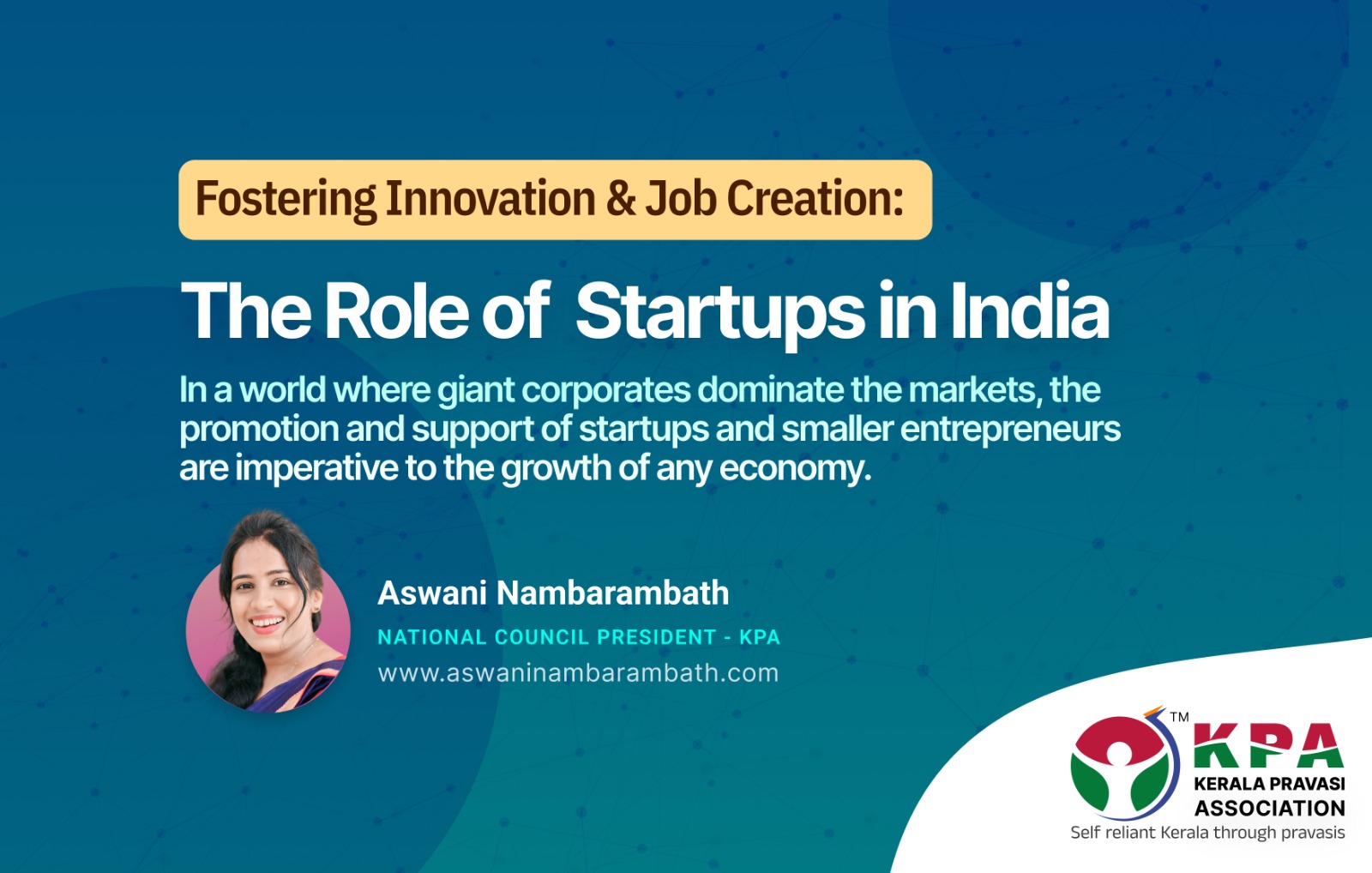In a world where giant corporate enterprises dominate the markets, the promotion and support of startups and smaller entrepreneurs are imperative to the growth of any economy.
Today, India has firmly established itself as one of the largest global hubs for innovation and entrepreneurship. This can be attributed to several factors, including a more tech-savvy youth population, and a growing middle-class demographic that is increasingly supportive of startup ventures. As a result, startups mushrooming from the country have transitioned from being primarily service-oriented to product and tech innovation across various sectors.
Today, India creates over 10 million jobs annually and these numbers are driven largely by these startups. Globally, there are 150 million startups, with an astonishing 50 million new startups launching each year, averaging around 137,000 new businesses daily.
Thanks to this growth, India’s Gross Domestic Product (GDP) is also projected to experience a surge of 5-10% by 2030, according to the 2023 edition of Inc42’s “The Ecosystem” report. At a GDP growth rate of 6%, India’s economy will soon outpace the growth of the United States (4%) and the European Union (1%), trailing only behind China (9%) in the next decade.
The inception of the “Start-up India” campaign on August 15, 2015, marked a pivotal moment in India’s entrepreneurial journey.
A 2015 NASSCOM report revealed that India ranks fourth in the world, trailing only behind the United States, the United Kingdom, and Israel, with approximately 3,100 startups per year. The trajectory is promising, as Indian tech startups are projected to generate around 250,000 jobs over the next five years. More recently, between 2014 and June 2023, India saw the launch of over 68,000 startups, cementing their position on the Global Start-up Map, as a hotbed of innovation and entrepreneurship.
If growth continues at the same pace, Indian tech startups are expected to create around 2.5 lakh jobs in the next five years. India is expected to have 112 million workers aged 20-24 by 2020, compared to China’s 94 million workers. The role played by start-ups is essential in giving a new dimension to entrepreneurship in the country.
But like any sector, the challenges faced by startups are not small.
Challenges like a shortage of skilled labor, insufficient funding, and fierce competition from corporate giants loom large. Inadequate infrastructure and the complexity of scaling operations pose formidable hurdles. Regulatory complexities and bureaucratic obstacles, too, have impacted many startups in some sectors.
Yet, in the face of adversity, India’s startup ecosystem continues to grow in numbers. This resilience is a testament to the belief that governments alone cannot drive economic progress.
By providing a more streamlined process and a startup-friendly regulatory environment that will sustain the startup-boom momentum, startups can also help tackle societal issues, propel growth, satisfy consumer demands, and fortify the economy. Startup enterprises must continually invest, innovate, and refine existing innovations to lay the groundwork for advancing the nation’s economy. To cultivate and sustain the entrepreneurial ecosystem, India must confront the challenges that startups face.
Addressing these will significantly bolster economic growth, foster job creation, and spur innovation. By creating an environment conducive to startup success, India has the potential to ascend as a global nucleus for innovation and entrepreneurship.
As we navigate a world dominated by corporate giants, startups remain the lifeblood of job creation and innovation. KPA firmly believes that by creating an environment that fosters the success of startups, India has the potential to strengthen its position as a global hub for innovation and entrepreneurship.





